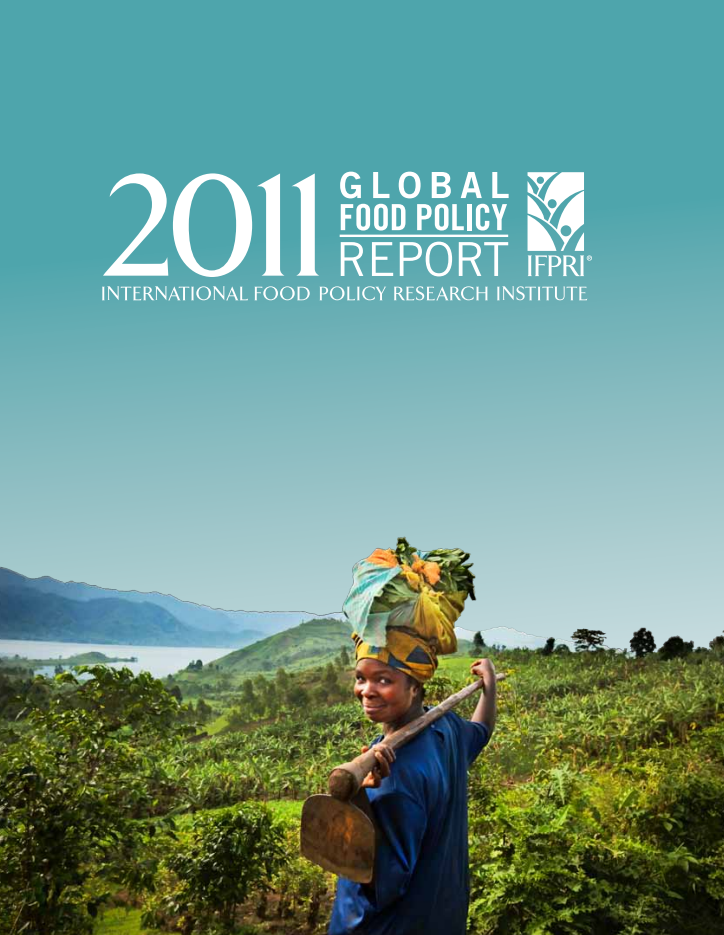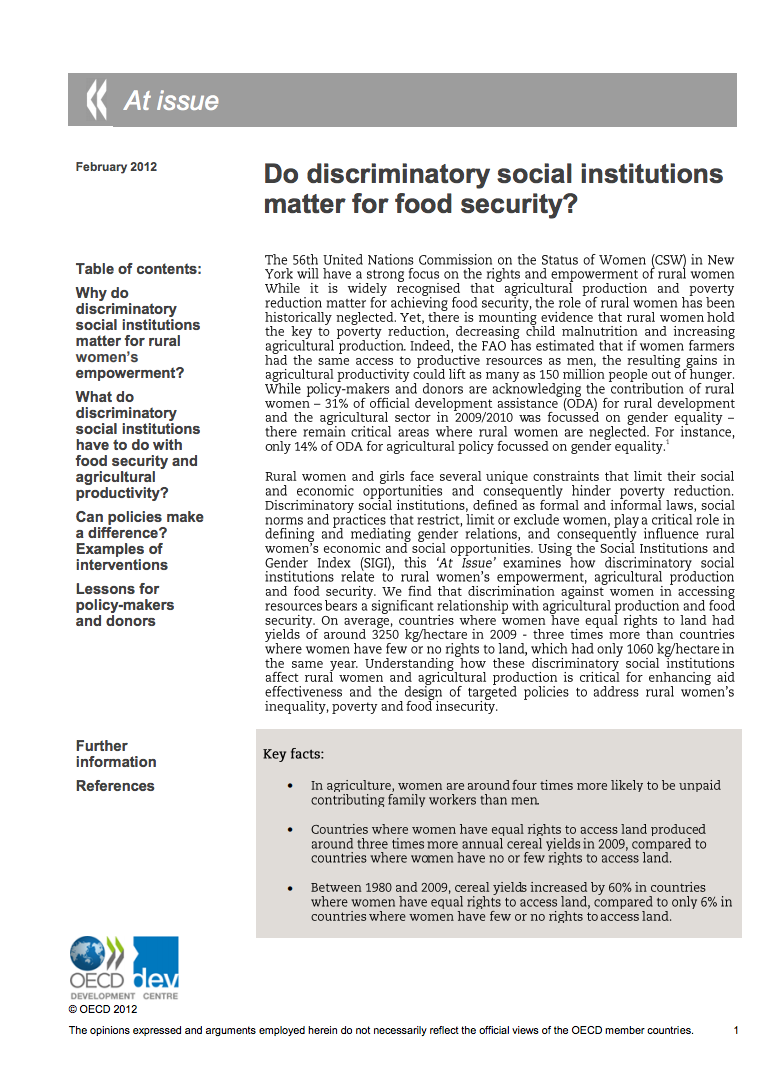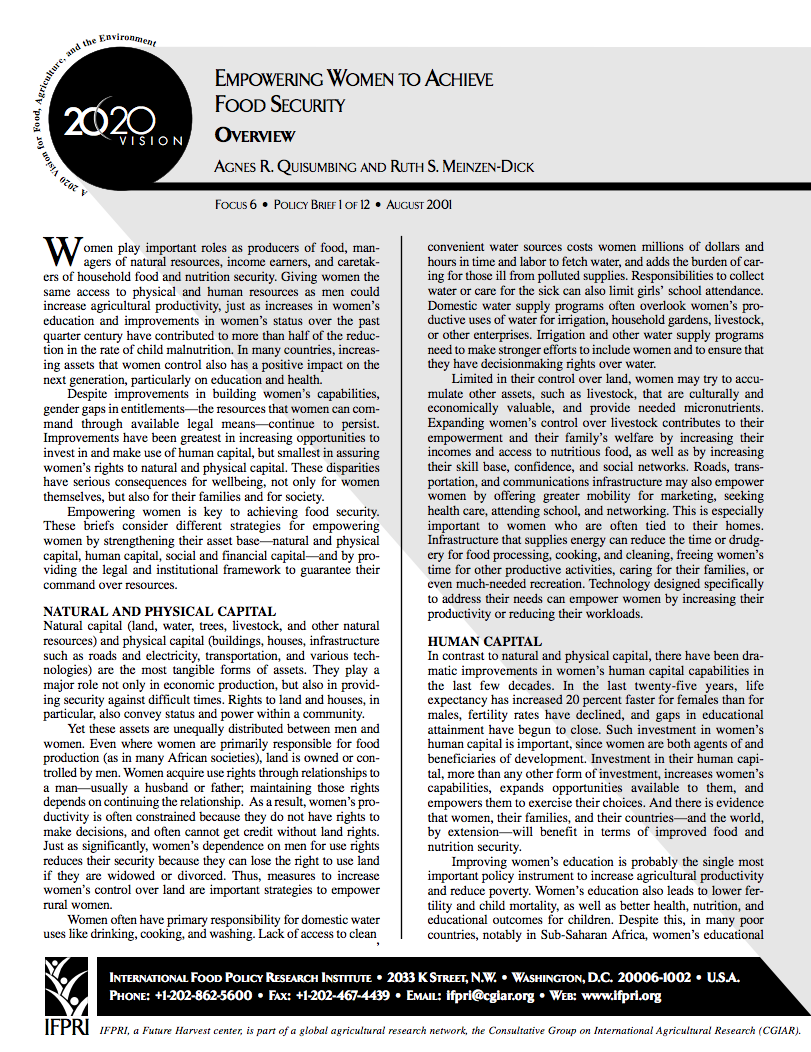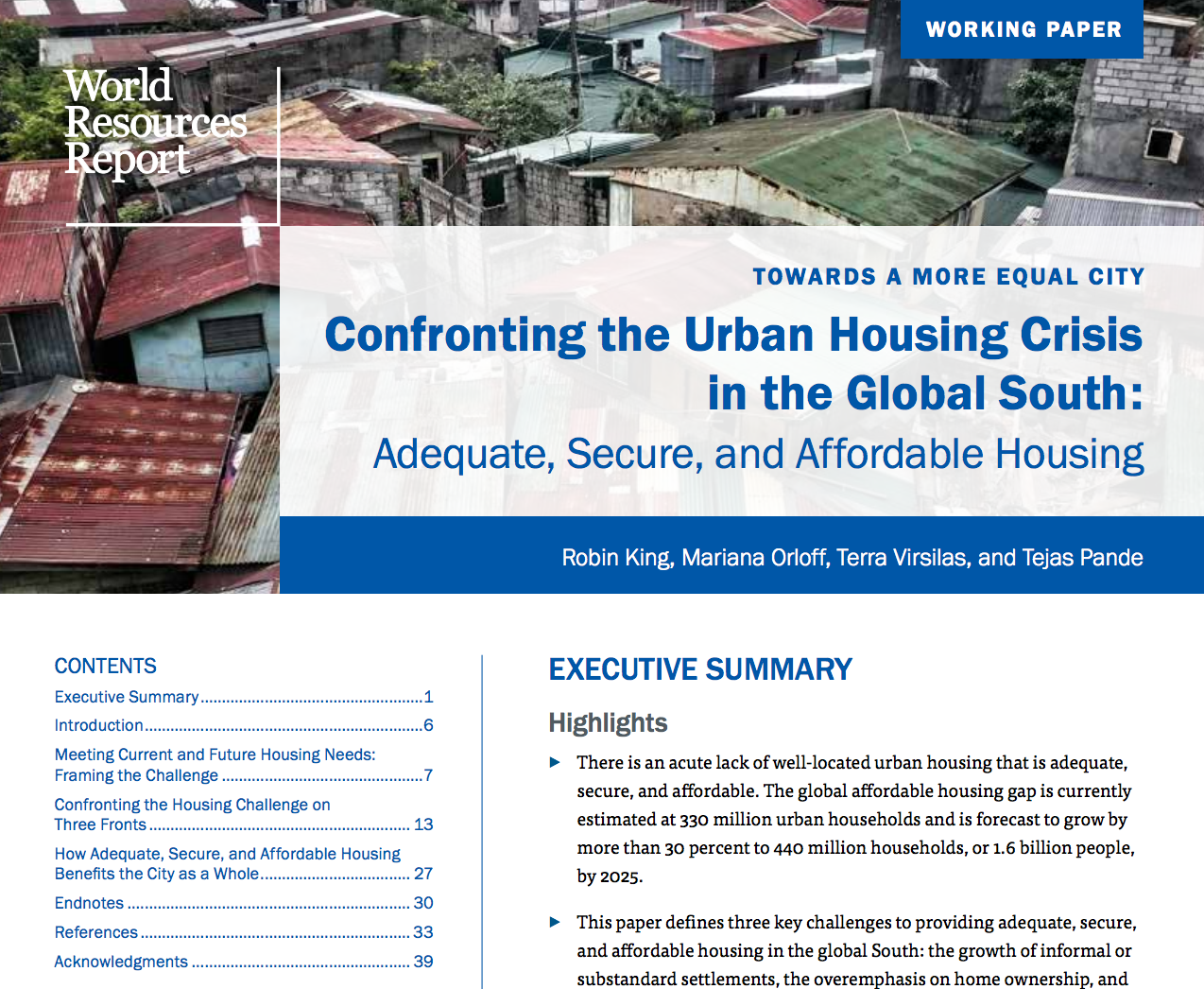Global Food Policy Reports 2011
The 2011 Global Food Policy Report is a new annual IFPRI publication that provides a comprehensive, research-based analysis of major food policy challenges at the global, regional, national, and local levels. It highlights important developments and events in food policy that occurred in 2011, discusses lessons learned, offers policy recommendations, presents IFPRI’s food policy tools and indicators, and takes a look forward into 2012. The Report reflects perspectives from across the globe.







